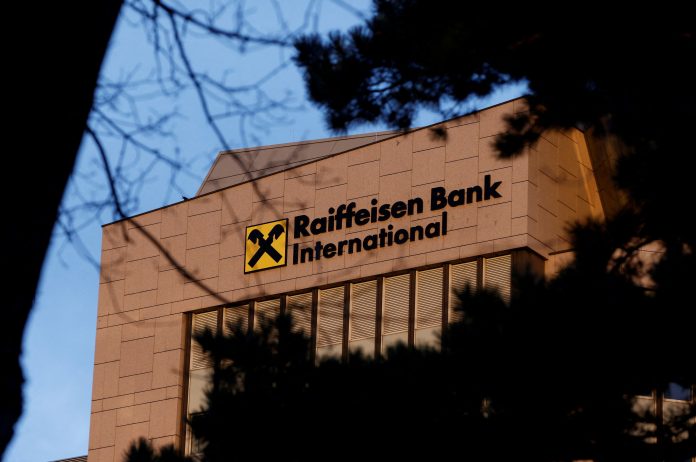Austria’s Raiffeisen Bank International (RBI), the largest Western bank still operating in Russia is on the verge of abandoning a controversial €1.5bn share swap deal with sanctioned Russian oligarch Oleg Deripaska due to intense US pressure, IntelliNews reports.
The planned deal, which the bank had hoped to finalise this month, would have allowed RBI to repatriate about €1.5bn of its subsidiary’s earnings detained in Russia, but could also have allowed Deripaska to cash in a reportedly frozen 28% stake in Austrian construction company Strabag.
Russian authorities were expected to approve the swap deal. In February, at its 2003 results presentation, RBI said the deal should be finalised at the end of the first quarter and it would add 125 bps to its CET capital adequacy ratio. However, the deal is now likely to be cancelled, derailing one of the largest Western deals in Russia since the start of the military conflict in Ukraine.
If RBI does go ahead with the deal, Washington could impose penalties on the bank, the agency said. According to the agency, Austrian regulators are also cautious. A spokesperson told IntelliNews:
It goes without saying that RBI will not proceed with any deal which would be in breach of sanctions, or expose RBI to the risk of sanctions.
Deripaska has criticised Western sanctions against him and denied any connection to the company, which owns Strabag shares. The pressure has already triggered a setback to the bank’s plans to sell €650m of “additional tier 1” (AT1) bonds, which have attracted more than €1.6bn of investor interest, according to a Financial Times report.
The proposed bond offering, yielding 8.5 per cent and maturing in December 2029, was aimed at redeeming the existing AT1 bond.
The decision to withdraw the bond issue was taken shortly before pricing was finalised, after what an internal memo from the bank described as a “negative market reaction to recent headlines”.
Shares in RBI, the fourth-largest cross-border bank by assets in Central and Eastern Europe (CEE), fell 8.7% on the back of the news on 20 March. News of the deal with Strabag in December had sent the bank’s shares surging, which had fallen due to controversy over its Russian ties.
RBI remains the largest European bank still operating in Russia. Its main rival Société Générale ceased operations after the outbreak of the military conflict in Ukraine, selling its local Russian bank to oligarch Vladimir Potanin.
Due to its presence in Russia, the Ukrainian government lists RBI as an “international sponsor of war,” forcing Western companies to refuse to do business with the bank. The Austrian government has been trying to get RBI removed from this list and has even reportedly at times threatened to block new EU sanctions against Russia if this is not done.
According to bne IntelliNews, Washington is pressuring RBI to cut its business in Russia, but the Austrian bank, which made its fortune as an early investor in Russia, is very reluctant to get off the list given that it would hit its profits hard.
RBI also says it handles billions of euros of international payments for Western companies that are still doing unauthorised business in Russia.
RBI’s net profit in Russia was 38 per cent in 2023, but restrictions by the Russian central bank have prevented the company from accessing revenues there. RBI is cutting lending in Russia, which has fallen 56% over the past six quarters to €6bn in 2023, while risk-weighted assets fell €2.3bn year-on-year to €14bn.
RBI is considering spinning off its Russian business into a separate business owned by RBI shareholders. This spin-off could follow the Strabag deal, which would minimise RBI’s losses from the dilution of the Russian business.
However, it is known that a major shareholder blocked this plan because he did not want to own RBI’s Russian shares. There were also doubts whether the shares in the Russian unit would be tradable. Any plan would also require co-operation from the Russian authorities, who are preventing Western companies from exiting and require large valuation discounts and special payments to give their approval.
This is not the first time RBI has tried to broker asset swap deals with sanctioned Russian companies as they try to rebuild their portfolios in light of sanctions and extract value from their Western investments.
RBI was also working out a potential €400m agreement with state-owned banking giant Sberbank, which has significant frozen European assets, but it was eventually abandoned when Sberbank sold those assets to an alternative buyer.
